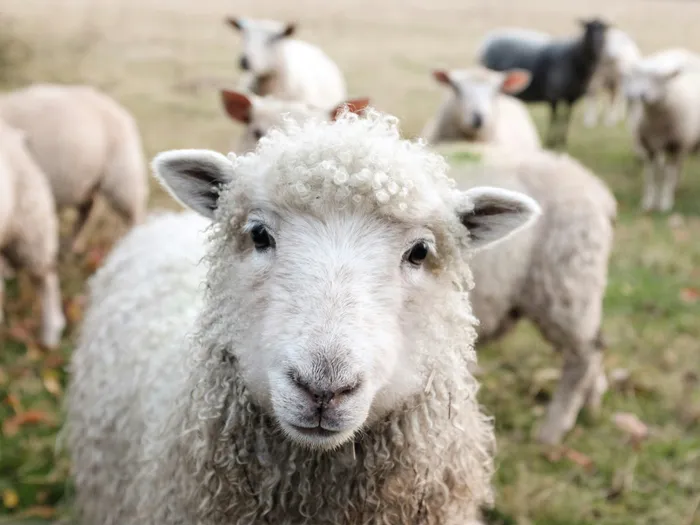Stellenbosch University admits students suffocated sheep in research experiment

Stellenbosch University has confirmed a serious breach of animal research ethics after students suffocated a sheep during a feed experiment.
Image: Unsplash/Sam Carter
Stellenbosch University has acknowledged that students in its Department of Animal Sciences blocked a sheep’s nostrils and mouth with their hands during a feed experiment - an act now confirmed to have violated the institution’s approved animal research protocols.
The incident, which came to light following a report in Farmer’s Weekly magazine, prompted an investigation by the National Council of Societies for the Prevention of Cruelty to Animals (NSPCA).
The magazine alleged that students at the university’s experimental farm had nearly suffocated sheep using plastic bags to make them urinate and defecate as part of studies analysing their feed intake.
A whistleblower also claimed that some animals had, at times, been left without food or water.
In a statement released on October 21, Stellenbosch University (SU) confirmed that its internal probe had found students had carried out what was described as “transient apnoea” on one of the sheep.
The practice involving the temporary obstruction of the animal’s airways was found to be “a deviation from the approved protocols of its research ethics committee for animal care and use.”
According to the university, the approved and ethical way to collect urine from animals is through palpation of the bladder - a technique where pressure is applied to the abdomen to encourage urination.
A formal complaint was submitted to SU’s Research Integrity and Ethics Office in June 2025, after Farmer’s Weekly’s coverage of the alleged cruelty.
A research integrity officer was appointed on July 15, five days after the story broke, to investigate whether proper research standards had been breached.
The investigation, concluded on October 4, followed SU’s procedures for handling alleged research misconduct.
Interviews were conducted with the principal researcher, the chair of the animal care and US ethics committee, and other individuals linked to the study.
The inquiry confirmed that a suffocation-like incident had occurred and further revealed that the principal researcher failed to report the deviation from the protocol to the ethics committee as required.
In its statement, the university said: “Based on interviews and facts gathered during the investigation, the research integrity officer identified the deviation as a singular incident that was immediately stopped by the on-site veterinarian.”
“It is apparent that the deviation stemmed from the fact that the students involved were unaware that the method of transient apnoea would be an unethical alternative when their attempts at palpation were unsuccessful,” the statement continued.
“The students did not attempt the method again after the veterinarian had made them aware of the harm to the animals.”
SU also rejected claims that the animals had been deprived of food or water, stating that they were part of a feed trial and therefore had continuous access to both.
According to the university, the matter will be used as “a learning opportunity for the students involved,” while ensuring that faculty and departmental leadership take steps to prevent similar incidents in the future.
Among the integrity officer's recommended actions were:
- Departmental leaders must address the breakdown in communication between academic staff and students.
- Principal investigators must provide all participants - including students, veterinarians, and collaborators - with copies of the final ethics approval and correspondence from the research ethics committee.
- Veterinarians must receive adequate notice to review and approve animal experimentation before applications are submitted.
- All academic, research, and technical staff, along with senior undergraduate and postgraduate students, must attend mandatory lectures on animal experimentation ethics, presented by qualified experts.
In addition, any researchers or students working with animals will now undergo compulsory training on responsible research conduct.
The NSPCA, which is represented on Stellenbosch University’s research ethics committee, has been made aware of the findings, said Jacques Peacock, communications manager at the organisation.
Related Topics: